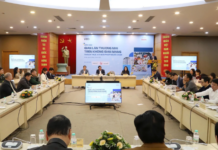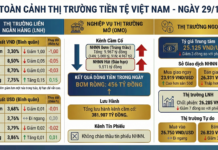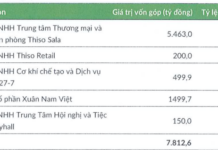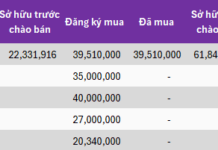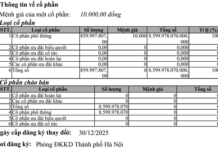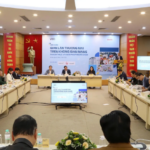On the afternoon of April 24 in Ha Noi, Prime Minister Pham Minh Chính chaired a conference on developing human resources to serve the semiconductor industry. The conference was organized by the Government Office in collaboration with the Ministry of Planning and Investment.
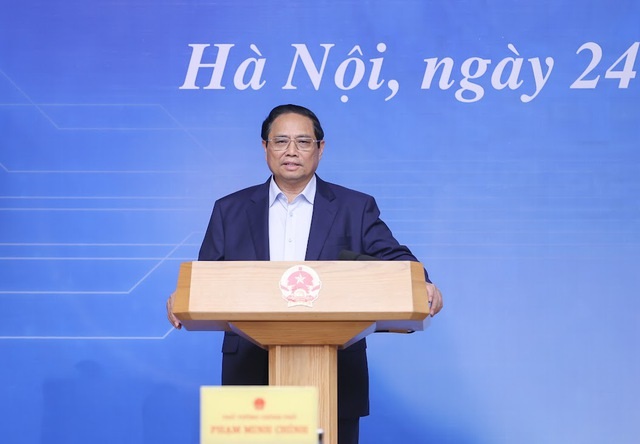
Prime Minister Pham Minh Chính delivers an opening speech at the conference on developing human resources to serve the semiconductor industry – Photo: VGP/Nhat Bac
|
In his opening speech, Prime Minister Pham Minh Chính stated that digital transformation is an objective requirement, a strategic choice, and a top priority in implementing socio-economic development goals.
The semiconductor industry plays a crucial role, serving as the foundation for three revolutionary transformations: digital transformation, green transition, and smart transformation.
Currently, the global semiconductor industry is unevenly distributed and developed, concentrated in several economies, such as the US, South Korea, Japan, China, Europe, and Taiwan (China).
In the current context, due to various reasons, the semiconductor industry is trending towards diversification, shifting supply chains, production, and research to other countries, including Vietnam.
This presents both an opportunity and a challenge for Vietnam, as it requires appropriate infrastructure, institutions, and human resources to meet the development needs and attract investment in the semiconductor industry.
According to the Prime Minister, human resources are also one of the factors that partners expect from Vietnam. If the human resource pool is well-prepared, Vietnam will gain trust, attract investment, and develop a semiconductor production and supply chain.
Since the end of 2023, the Government has assigned the Ministry of Planning and Investment to develop and submit to the Prime Minister for issuance a “Project on Developing Human Resources for the Semiconductor Industry by 2030, with a Vision to 2045,” aiming to train 50,000-100,000 semiconductor engineers.
The Prime Minister said that the conference was being organized to hear opinions to achieve the above goal in the shortest possible time. Suggesting approaches, the Prime Minister said it was necessary to apply both incremental solutions and breakthrough solutions.
Regarding the incremental approach, the Prime Minister suggested that based on the existing development of the electronics and information technology industry, Vietnam could shift its human resource training programs in information technology and electronics to the semiconductor field. Additionally, a number of faculties could be established at training institutions and a number of laboratories at research units, while making the most of existing facilities and adding new ones.
The Prime Minister requested delegates to provide suggestions on the tasks that need to be carried out by training and research institutions, ministries, sectors, state management agencies, the Government, and local authorities, “to launch a semiconductor human resource training campaign based on the principle of leveraging existing facilities and resources, making appropriate adjustments to achieve the set goals without causing too much disruption.”
The Prime Minister also asked delegates to contribute ideas on breakthrough solutions to boost the training of human resources for the semiconductor industry.
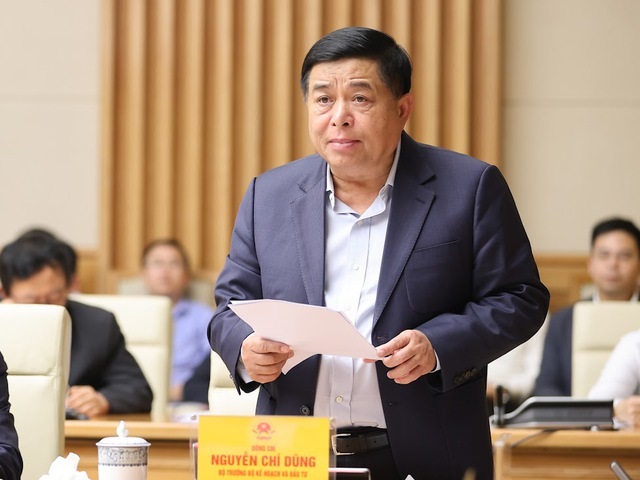
Minister of Planning and Investment Nguyen Chi Dung discusses the “Project on Developing Human Resources for the Semiconductor Industry by 2030, with a Vision to 2045” at the conference – Photo: VGP/Nhat Bac
|
Discussing the “Project on Developing Human Resources for the Semiconductor Industry by 2030, with a Vision to 2045” at the conference, Minister of Planning and Investment Nguyen Chi Dung proposed seven groups of tasks and solutions for implementing the project.
The first is to train lecturers and regular students, provide postgraduate training, offer short-term and transitional training, and encourage organizations and businesses to participate in training.
The second is to promote research and development.
The third is to invest in facilities and technological infrastructure for training.
The fourth is to attract experts and talents.
The fifth is to create job opportunities for human resources and support business development.
The sixth is to develop specific mechanisms and policies for training human resources for the semiconductor industry.
The seventh involves international cooperation, communication, and other implementation support solutions.

